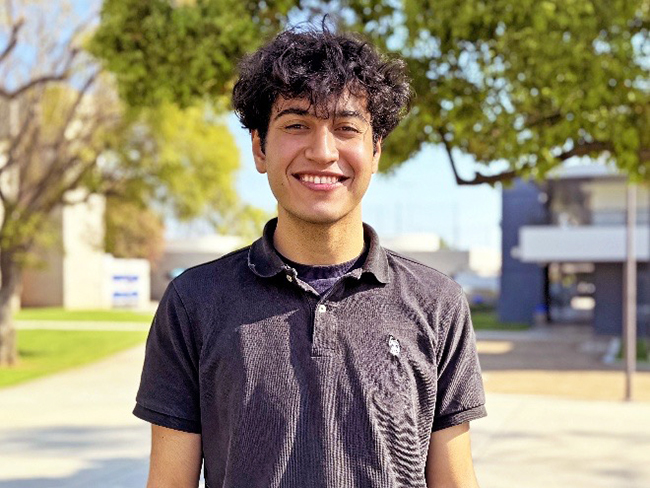Lessons in speaking up, taking part
by John Pixley
“I’m not shy.” Gloria Allred didn’t have to say it again. She didn’t have to say it at all. It was perfectly clear that Gloria Allred isn’t shy.
Not that she needed to make it clear. It was no doubt a big part of why the lawyer, perhaps the most famous one in America, spoke at Claremont McKenna College’s Atheneum last week.
Ms. Allred isn’t shy about being in the news, speaking out at media events and representing those wronged in high-profile cases as she has “done for 37 years” and, this summer, when she represented women allegedly harassed in a blatantly sexual manner by San Diego Mayor Bob Filner who has since resigned, was no exception. And she wasn’t shy about devoting a good part of her presentation at CMC to her “adventures in San Diego.”
Indeed, that’s the way she presented her work in San Diego—as an adventure. Or an Italian sex farce. Ms. Allred clearly reveled in describing Mayor Filner’s ridiculous, boorish behavior—the groping, the ceaseless romantic propositions, the head-locks, as well as the too-little-too-late promises and attempts to “be a better mayor”—and her role in exposing and stopping it. As comical and theatrical as it might have sounded in her telling, it was, as she repeatedly pointed out, all too real and no laughing matter.
She also couldn’t resist reading an open letter she wrote in the midst of these adventures to Rush Limbaugh when the conservative radio host accused her of not going after Mayor Filner because of him being a Democrat. Her response was that he was either lying, didn’t read the news or “perhaps couldn’t read.”
Grandstanding though she may have been, Ms. Allred made it clear that it’s important to stand up and speak out against sexual harassment, and all the more so on college campuses. She spent the rest of the hour or so talking about her work, also in the news lately, representing female students at Occidental College who claimed that their allegations of rape and sexual harassment weren’t taken seriously. In a much more straight-forward and, yes, legalistic manner, she explained that it is vital for students, both female and male, not to be shy when they are the victims of or when they see sexual harassment and for college administrators to deal with such allegations promptly and effectively.
It turned out that “I’m not shy” was so much more than a flippant, throwaway line, soliciting chuckles, for Gloria Allred. It was her rallying cry for the students and the rest of us to be like her, to not be shy and be empowered.
Being empowered—and learning to be empowered— was also the message when I went to two talks on a previous Thursday evening not long after the colleges started their new year. (Yes, there are so many events going on at the colleges that it is often possible to attend more than one on one evening.) Unlike with Ms. Allred, I had not heard of the speakers, but both were happy discoveries for me, turning out to be well worth hearing.
I started off by going to the Athenaeum again, where Eric Liu kicked off the fall semester speaking to the freshman class. Mr. Liu, who was a consultant to the Clinton administration and writes and speaks on democracy and citizenship, spoke eloquently and fervently on being an active participant, whether in college or in society. (He noted that the CMC freshmen class is in an unique position, starting off with a new college president and able to “set a new tone” at the school.)
With the explanation that he was talking about more than voting and going through the motions, Mr. Liu pointed out that there are three components, all equally important, to being an active, engaged participant, not only in society but in personal relationships. One is power and understanding how it is used. One is character—being honest and consistent. And the other is practice. As with writing, it is important to practice, practice, practice interacting with people and society, open to learning more, including from mistakes.
I left a bit early, during the Q and A session, to head over to Pomona College where, in the first of a year-long series of lectures called “The Heart of Liberal Arts” on liberal arts colleges that I’m very excited about, Andrew Delbanco spoke on “What Is College For?” I was surprised to find the theater packed, but I guess I shouldn’t have been, for it turns out Mr. Delbanco, who first confessed to being like Woody Allen and disoriented anywhere west of the Brooklyn Bridge, is a well-known literary and cultural critic who teaches humanities and directs the American Studies program at Columbia University.
After pointing out that colleges and universities and especially the humanities are “in trouble,” with institutions of higher education being seen these days as for the elite and spoiled, what with luxurious amenities and students dealing with high cost and debt, etc., and with emphasis now on science, technology, engineering and math (“STEM”), Mr. Delbanco asked why we should be concerned, why we should be alarmed, about this.
He acknowledged being biased and a romantic when it comes to college, noting that fall is a poignant time of year for professors with the leaves falling and the weather getting cold (although maybe not here, he added half in jest), a reminder that they’re getting older as the students aren’t, but he went on to cite all kinds of references from Greek philosophy to Herman Melville’s Moby Dick supporting the case that higher learning makes one a better person, better able to relate to others. Mr. Delbanco posited that, more so than in medieval times when people went to college to learn about a specific thing, modern colleges and universities, particularly those specializing in the liberal arts, are about opening the mind and dialoguing, with the ideal classroom being where one can learn about oneself and others.
I couldn’t help but hear echoes of what I had heard Mr. Liu say earlier in the evening about practicing relating with others and with society. Indeed, Mr. Delbanco, who noted that he is an Italian Jew, stressed that this is why diversity and affirmative action is important at colleges and that he is pleased that his university and Pomona College have generous financial aid and grants, encouraging those who might never think of going to college, much less such a prestigious private one, to do so.
It ended up that, for me, going to hear these two speakers I wasn’t familiar with was a good example of what happens in being open and engaged, as should happen not only in a good class but also in engaged citizenship. And I also couldn’t help going home that evening happy about what is happening in Claremont at The Colleges and being able to see it happen.










0 Comments